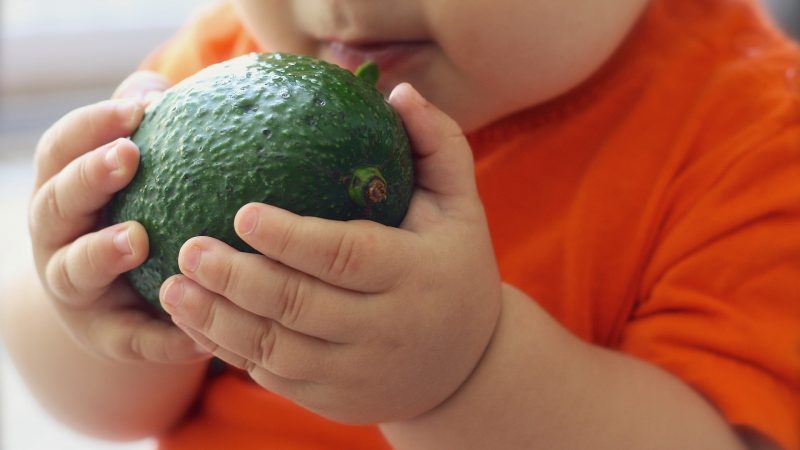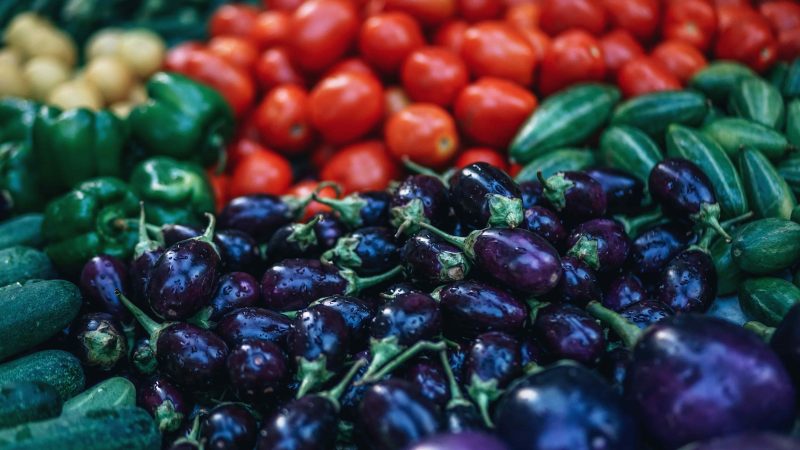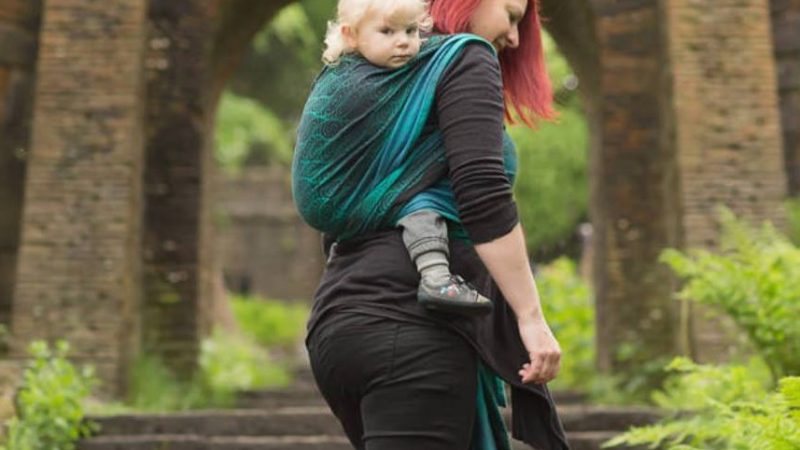
Milk and Beyond – Weaning Q&A
 Heather Welford has been an NCT breastfeeding counsellor and tutor, training other breastfeeding counsellors and healthcare professionals, for many years. As a journalist and writer, she’s written several books and many articles about feeding babies, and has a strong interest in research related to this field. She gained an MSc as a mature student, looking closely at early infant relationships. She retired last year and has three adult children and three young grandchildren. She lives in Newcastle upon Tyne.
Heather Welford has been an NCT breastfeeding counsellor and tutor, training other breastfeeding counsellors and healthcare professionals, for many years. As a journalist and writer, she’s written several books and many articles about feeding babies, and has a strong interest in research related to this field. She gained an MSc as a mature student, looking closely at early infant relationships. She retired last year and has three adult children and three young grandchildren. She lives in Newcastle upon Tyne.
Q: My HV talks about a “window of opportunity” for weaning i.e. that it shouldn’t be delayed. Is this based on any research?
Heather: The window of opportunity is a misreading of the research. I wish this myth would die down. Follow the baby – he or she will show when he’s ready.
I think that the misreading resulted from a study of babies who had very specific feeding difficulties. If I remember correctly, some of them had to be tube fed for a while and afterwards it was found it was hard to get them onto more normal ways of eating. Clearly this was a special case. I don’t really know how it got misunderstood, but it should not really be part of HV training to scare parents in this way. We do know that it’s helpful to give varied tastes and textures from early on in solid feeding, and not to stick to spoon feeding for months and months and months – some toddlers then get conservative about lumps. I don’t think this is quite the same as a ‘window’ though.
Q: What is the right age for weaning? My little boy has severe reflux.
I want to hold off weaning until 6 months based on what I’ve read. Our Health Visitor suggested 4 months but said she wouldn’t personally do it until 5 months. Our reflux NHS contact suggested controlled weaning at 5.5 months.
Heather: As you know, the current guidance is six months. However, this is sort of a convenient bench mark, rather than being based on research that says 5 mths 3 weeks is risky and only 6 mths spot on is safe. There is no harm at all in not giving solid food until six months, but neither is there any harm in giving solids at 4 months.
However, at 4 months, you might be replacing milk with solids, and for some babies that might mean weaning (from milk) a bit soon, because they fill up on solids. If your HCPs are suggesting that solids might help with your baby’s reflux, which is possible, then weaning a little earlier than 6 months might be helpful.
Yes, you need to be careful to not rush solids. But the difference between 5.5 months and 6 months is going to be academic.
Q: How best can I night wean my 2 year old? He feeds all through the night, every 2 hours.
Heather: Yeah, some toddlers just love feeding through the night…it’s hard because it is a way of falling and staying asleep, and that’s difficult to give up. You might have to get creative and think of other ways to settle him.
But to be honest, a chat like this one is not the greatest way to discuss this as so much of what you might do instead will come from a proper dialogue. I do suggest calling a breastfeeding helpline like NCT’s, as all breastfeeding counsellors have a lot of experience in talking through the options for night feeding.
Q: Do you know of any decent research into different feeding methods such as baby-led-weaning and spoon feeding?
Heather: We could really do with some good research on baby-led-weaning, to reassure people it’s fine to do it! There’s no prima facie reason why it should be harmful or leave babies going short.
There are some studies, but we don’t yet have a nice big one! One of the reasons for this is that there is no real health worry about baby-led-weaning, so there’s no real incentive to follow these babies looking for things wrong with them.
Q: My 12 month baby-led-weaned boob-fiend eats very little, despite being offered a healthy balanced diet.
A cranial osteopath seemed to believe her frequent waking (1-2 hourly), is due to her being deficient in protein. It got me thinking about possible protein and iron deficiencies in babies. What’s normal and how much does breast milk give babies post 12 months?
Heather: I really don’t think there is any evidence that night waking in a healthy, thriving baby has anything to do with protein deficiency. Waking as often as this is on the normal spectrum, as you know. I’ll not post about the sleep and stay talking about food for the minute.
Protein deficiency is not typical at all. But there is some research that indicates that some babies not on solids, or not on many solids, may be short of iron (though there’s no reason for this to affect sleep). Breastmilk is not a great source of iron for older babies – it’s fine for younger babies, who have iron stores, but these do start to run out from about six months. It doesn’t happen overnight, and it’s nothing to panic about. But by 12 months, most babies will certainly start to need iron in their diet.
It might be worth asking the HV about this – going through the baby’s daily diet and seeing if there are ways to boost her solids/iron intake. There are a number of foods which babies like and are good sources of iron. For example, dried fruits, such as apricots, are nice for toddlers and they can hold them and feed themselves.
Q: I have read the claim that although breastmilk is lower in iron than formula, it’s more bioavailable and therefore easier to absorb. Is that correct?
Heather: Yes, this is true, but this does not mean its ok for babies to be on breastmilk or formula with nothing else as they get older. Neither breastmilk nor formula is ok on its own for older babies.
Q: Do you recommend giving vitamins (other than Vitamin D) to infants who have a varied diet. If so, to what age?
Heather: Vitamin D is worth supplementing, and the only vitamin where there is decent evidence that it should be routinely given to all babies and toddlers (except those fully on formula – that’s because the supplements are already in the formula). It’s not that breastmilk is deficient, just that our modern lifestyles may be deficient in sunlight, especially in northern Europe like where we are.
I think this article is quite good – not a systematic review but a discussion document looking at the problems in deciding what might be deficiency in a population, the effect of diet and what public health measures appear to be effective. It does support the notion that Vit D supplementation is a ‘good thing’ especially for infants and children.
Vitamin D: An overview of vitamin D status and intake in Europe (Nutrition Bulletin 2014 Dec; 39(4): 322-350)
If your baby gets outside on most days and is not swathed in clothing and blankets and has a varied diet, then it would be hard to argue that he needs Vitamin D. However there is a school of thought that says few of us in the UK get enough Vitamin D (including babies) and we would all benefit from supplements! Norwegian babies all get it!
If a toddler eats a varied diet then he or she does not need other vitamins, but the commercial Vitamin D is often packaged with other vitamins. And that’s ok…extra will not do harm.
Q: Thank you – I will get myself some Vitamin D too! How do we take it – I can’t imagine I can get a baby to swallow a pill!
Heather: Vitamin D for children and adults are chewable, and you can get Vitamin D drops for little ones – no chewing required!
Q: My son is 10mths and on 91st centile but he doesn’t eat many solids.
We do a mix of baby-led-weaning and spoon feeding but he’s not really bothered either way – I still feed him on demand and many times through the night. Is this normal?!
Heather: He sounds fine. If you are happy and he is happy, then carry on. One way you could encourage more solids – just to enable him – is to place a few things in front of him, so that he can pick up and explore different textures and tastes and colours. There’s no rush, but it’s good to be thinking of how to make the experience of food fun and interesting for him.
Q: My 3 year old often asks for food and seems genuinely hungry just before bed (7:20ish), despite my offering dinner and healthy snacks until 6:45.
He is 25th centile for height but 4th for weight and very active, so we let him eat porridge or a peanut butter sandwich. Should we refuse food? He breastfeeds on demand and to sleep at night.
Heather: It sounds to me like you are doing the right thing, and porridge and peanut butter sandwich are fine. There’s a sort of cultural expectation that we don’t snack just before bed, I think, but for a slim, active, three year old I don’t think it’s too terrible! He may be genuinely hungry but not able to take in all his needs at his tea time. If you think it’s possibly getting in the way of a relaxed bed time, then perhaps you could offer more snacks at other times in the day. Toddlers can get ravenous though, and you are probably in the best position to judge.
Q: My little boy is 21 months and very much goes through phases with eating. Sometimes it’s like he can’t be filled at all and other times it’s hard to get anything in him at all!
He had a couple of days recently when all he’d eat was fruit and cheese! We always give him a choice of food but I was wondering if there was anything else we could do to encourage him to try things? He often point blank refuses and can get quite upset – at which point I always relent. Also, he still only has 5 teeth and sometimes I think this might hold him back a bit… any suggestions?
Heather: You’re doing the right thing in keeping things happy and non-tearful. It’s normal for toddlers to have phases just as you describe. A choice of food is good, but be careful not to overwhelm him. A max of two or three items on his tray for him to select from is fine. And if he likes fruit and cheese, you can vary those really well as there are so many different kinds. Just keep it fun, low key, have the same food as him when you can, and have a snack every time he eats, without too much urging.
Q: Is a healthy vegetarian or pescatarian diet sufficient for the need of growing children?
Heather: Yes – the Vegetarian Society has some good info sheets last time I checked them out on the web.
Q: Adding on to the vegetarian question – I’ve recently become a bit put off cow’s milk
(perhaps sympathy for other lactating mammals has done it!) and have been drinking alternatives, like almond milk. When my daughter stops breastfeeding and moves onto milk, would I have to choose full fat cow’s milk?
Heather: As you know, the standard advice is that full fat cow’s milk is the milk for toddlers. But if you prefer not to use this, you need to think of how else to get calcium, Vitamins A and D, and indeed calories into her diet. If you were not going to use dairy at all, that would mean no yoghurts, cheese, fromage frais as well as milk, all of which are easy and healthy for toddlers. If she’s still breastfed then her milk intake will be ok if she’s feeding a few times a day.
I do think this is something worth discussing with your HV, or researching yourself by assessing what you would need to include if she was not to have cow’s milk. It’s easier if it’s just the milk you want to avoid, rather than the whole gamut of dairy stuff, and if you are breastfeeding.
Q: Can I ask about sugar and unhealthy food in general?
What is the best approach? Ban it totally? Let them have as much as they want and hope they self-regulate? Something in between?
Heather: The whole sugar thing is a big parenting ‘thing’. I think banning it is probably not a good idea, but as much as they want is not a good idea either! We know sugar is not good in so many ways, so parenting common sense is the best way 🙂
Q: My little one has multiple food allergies which caused him to be classed as failure to thrive last year.
As a breastfeeding mum, it means I am on a restricted diet. As a result, I’m curious about Leaky Gut theory.
Heather: Gosh, that must have been worrying, and hard work for you, too. Leaky gut theory is interesting, and if you want to know more, I suggest you go to Maureen Minchin’s website. She collates research from the cutting edge of allergy and infant feeding related allergy. I think there is a lot we don’t know about this, including generational research i.e. the idea that if a mother is not breastfed herself, she affects the gut of her own off spring.
Q: Whether *you* were breastfed or not affects your child’s gut, even if you breastfeed them? Mind blown!
Heather: Well, I don’t think we can be sure of that yet, to be honest. Maureen Minchin is the one to read though. I also think we need to be careful not to catastrophise too much. As a society we need to make it possible for people to feed their kids healthily and happily and not ‘get at’ individuals. Plenty of women were not breastfed and their kids don’t appear to have their guts affected.
Q: As a group, we’re trying to find the areas that most need research, What untrue parenting myths do you wish would just go away?
Heather: Untrue parenting myths – there are many! My unfavourite is that breastmilk turns to water at six months!
Q: Where do you think the biggest gaps in research are in your field?
If you could wave a magic wand and get evidence for something tomorrow, what would it be?
Heather: My particular interests lie in feeding and relationships – when we talk about feeding it’s not just about giving milk, or milk and solids. It’s also a whole set of behaviours, cultural expectations, and social links we are experiencing. I’d like to know more about how they all interact.


